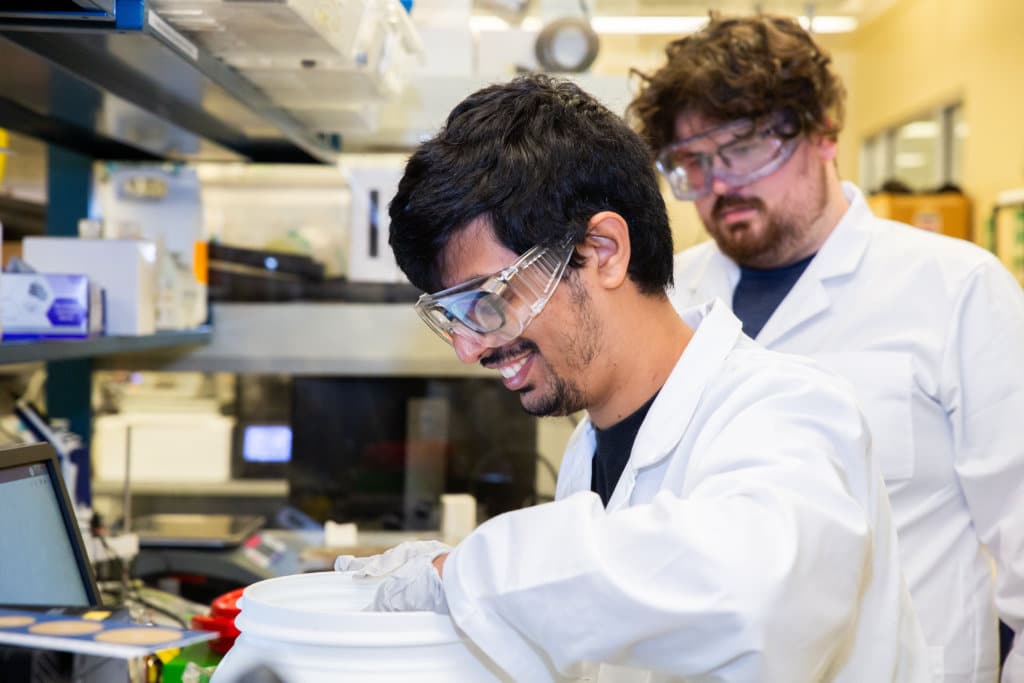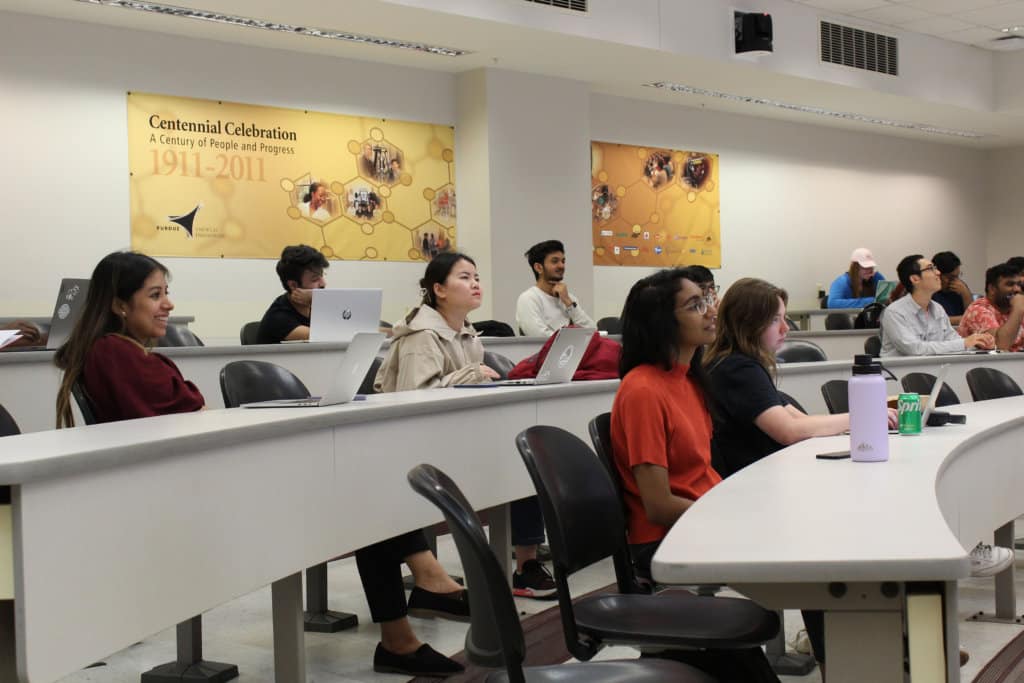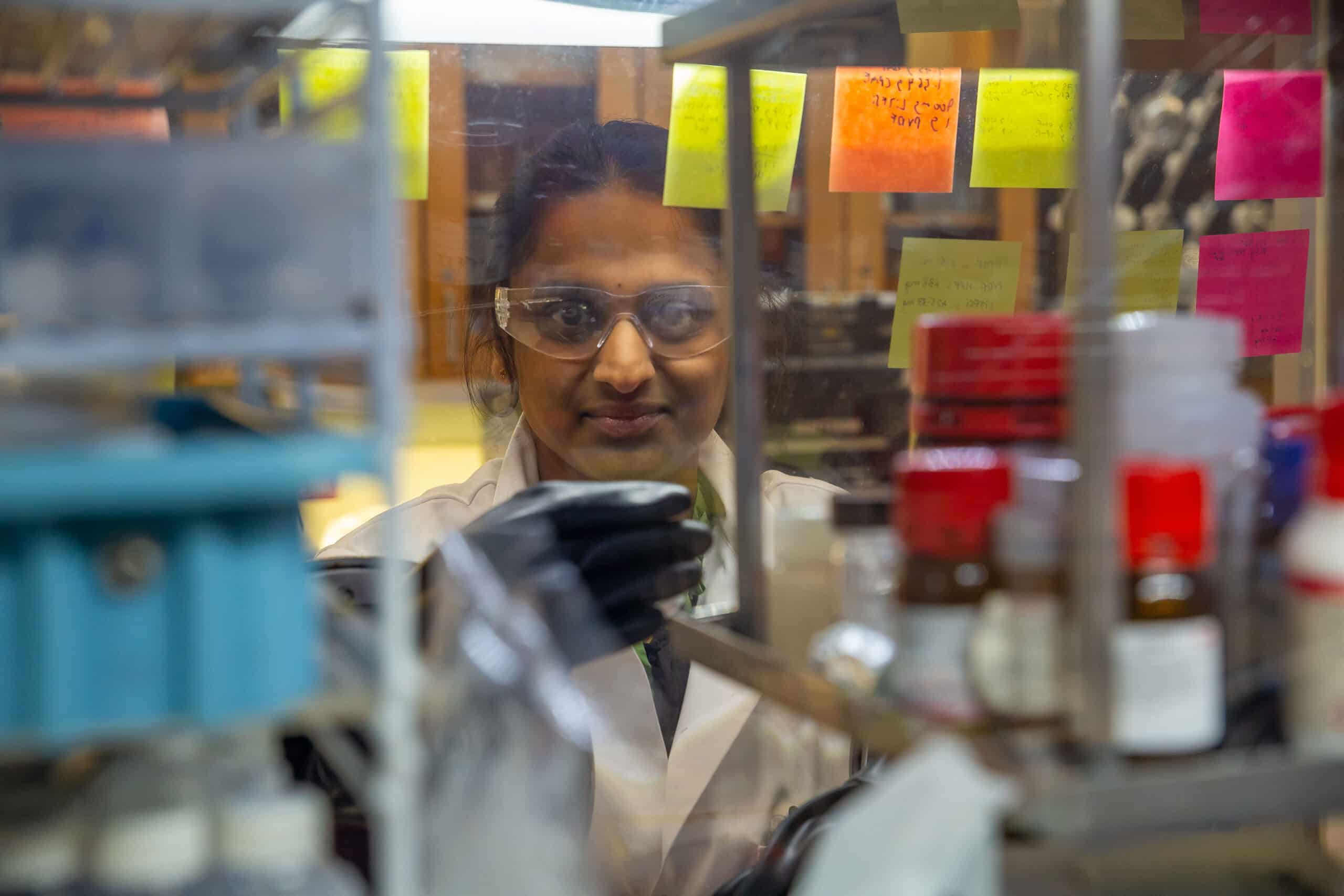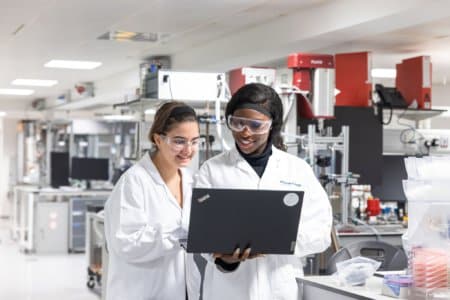Ian Gaines Flynn always wanted to fuse his passion for engineering with chemistry, as he hoped to work in the chemical or pharmaceutical industry. When he discovered the 12-month Professional Master’s Program (PMP) at Purdue University, he knew he’d found “the perfect opportunity” to explore both areas.
“I had research experience in an inorganic chemistry lab while working towards my undergraduate degree, but I realized I wanted a more industry-focused career path with potential for growth,” Flynn says. “Chemical engineering seemed like the perfect fit, and I chose Purdue due to its excellent program and proximity to my home.”
Ranked amongst the top 100 universities in the world (QS World University Rankings 2024), Purdue University’s College of Engineering is the fourth-ranked engineering graduate program in the U.S. (U.S. News & World Report) and is home to the Davidson School of Chemical Engineering.
The Professional Masters Program (PMP), offered through the Davidson School of Chemical Engineering, enhances one’s potential in industry through career-focused coursework and concentrations. Students choose one of the following seven key areas of chemical engineering that best aligns with their interests and career goals: Biochemical Engineering; Data Science; Energy Systems Fundamentals and Processes; Gas and Petroleum Engineering; Kinetics, Catalysis and Reaction Engineering; Pharmaceutical Engineering; and Polymer Science and Engineering. Each of these concentration areas includes core chemical engineering courses, technical electives allowing for specialization, and business courses that include operations and project management.
Unique and fast-paced, the PMP gives students a solid foundation in the field, helping them chart out their individual paths with precision and confidence. Ian Flynn is proof of this. He pursued a concentration in pharmaceutical engineering and found its coursework to be perfectly aligned with his aspirations — preparing him for professional success. A key step in the process was his capstone project.
“One of the defining moments of graduate school was my capstone project,” he explains. “The project involved an application of several chemical engineering principles to a real-world problem in the pharmaceutical industry, aligning with my academic goals. Sponsored by two Fortune 500 companies, the project tested a new tool to predict glass vial breakage during lyophilization of pharmaceutical components.”

Source: Purdue University
During the project, Flynn collaborated with industry experts who designed the experimental plan and provided individualized advice on an ongoing basis. Flynn’s experience is reflective of the PMP’s overall approach in which students receive personalized counseling from both faculty and industry mentors.
Dr. Joe Pekny, a professor at the Davidson School of Chemical Engineering and co-founder of Advanced Process combinatorics Inc. (APCI), is one of many professors leading students in the application of theoretical knowledge to real-world problems in the chemical engineering sector. APCI’s digital-twin plant simulation technology is revolutionizing pharmaceutical and biologics plant production. By compiling facility equipment and resource models with a process execution recipe, APCI’s technology aids process engineers in understanding a plant’s capacity and in investigating how potential investments or operational changes might affect the capacity.
Purdue chemical engineering students have the opportunity to learn and work with world-class Professors of Engineering Practice, who bring many years of real-world experience into their classrooms. Additionally, students have the opportunity to participate in professional development opportunities to help prepare them for career success.
Purdue chemical engineers are highly valued in the industry, as evidenced by their successful alumni and alumnae located all around the world. Of course, one of the driving forces for students to enroll in the PMP is the opportunity to find meaningful and well-compensated positions after graduation. In this regard, 94% of graduates gain employment at a wide spectrum of top companies within six months of graduation and receive an average starting salary of $90,551.
“Transitioning into this MS program presented me with numerous opportunities that significantly advanced my career,” says Harshit Bajpai, a PMP graduate with a concentration in data science. “The non-thesis nature of the PMP program assured me that it would provide professional skill development alongside business school experience. Moreover, the curriculum’s combination of industry-relevant courses and flexibility was highly appealing.”
Today, Bajpai is a Principal Data Scientist at Fortune 500 company, Mosaic Co., a global crop nutrient manufacturer. “My journey towards joining a Fortune 500 company solidified with Dr. Thomson’s Bayesian Statistics for Chemical Engineers’ class,” he says. “This class provided me with a lot of clarity and understanding for my future career. Building on this interest, I completed a capstone program specializing in data science.”

The professional master’s program offers students a chance to enhance their education with an industry-focused curriculum. Source: Purdue University
Many Purdue chemical engineering graduates transition from traditional roles (e.g., process engineer) to managerial positions during the course of their careers. The PMP positions students for this transition by offering three essential management and business-related courses. These courses help students gain knowledge and skills in areas beyond traditional engineering, preparing them for technical management roles. Thus, students not only acquire theoretical knowledge but also gain insights into the practical workings of the chemical engineering industry. This approach accelerates their careers and equips students with both an engineering mindset and business acumen — as evidenced by graduate Colin Jamison.
Jamison graduated with a concentration in energy system fundamentals and processes, and now works at General Motors as a research project engineer. During his time at Purdue, he gained knowledge in critical business thinking which enabled him to understand how business processes, operations and finance function. More importantly, this knowledge provided him with an edge when he joined General Motors.
“My current role at General Motors involves the interface between new battery chemistry development at a lab scale and manufacturing processes. Thanks to Dr. Vilas Pol’s mentorship and the experience I gained collaborating with the Vilas Pol Energy Research (ViPER) group, I have been able to accomplish a lot in my current job,” he says.
Colin’s experience is just one example of the way in which students are nurtured to become chemical engineers capable of solving real-world problems. At the Davidson School of Chemical Engineering, Professional Masters Program students are prepared to make giant leaps in the field of chemical engineering – impacting the world in the process.
Click here to learn more about the Professional Masters Program at Purdue University.
Follow Purdue University Davidson School of Chemical Engineering on X, Instagram, LinkedIn and YouTube.












